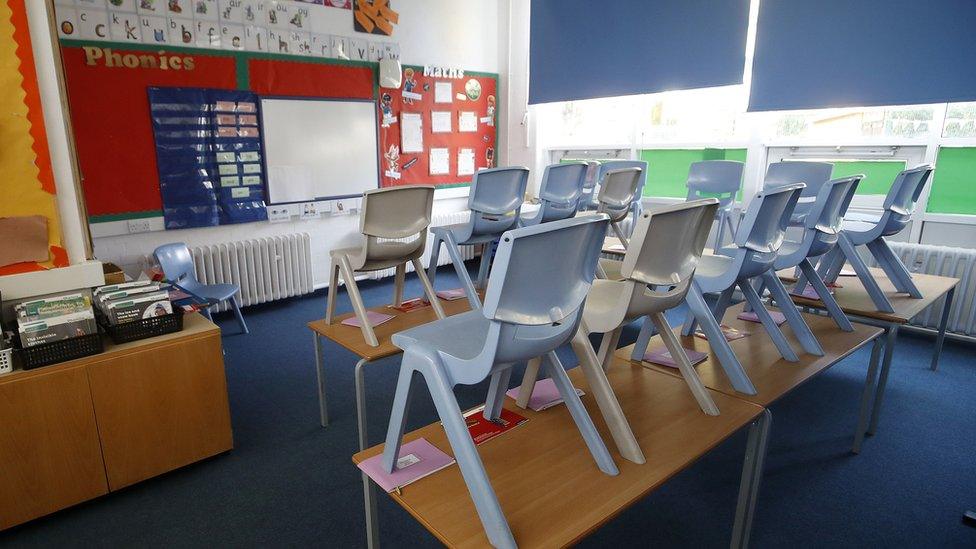Covid school closures 'put children's lives on hold', says Ofsted chief
- Published
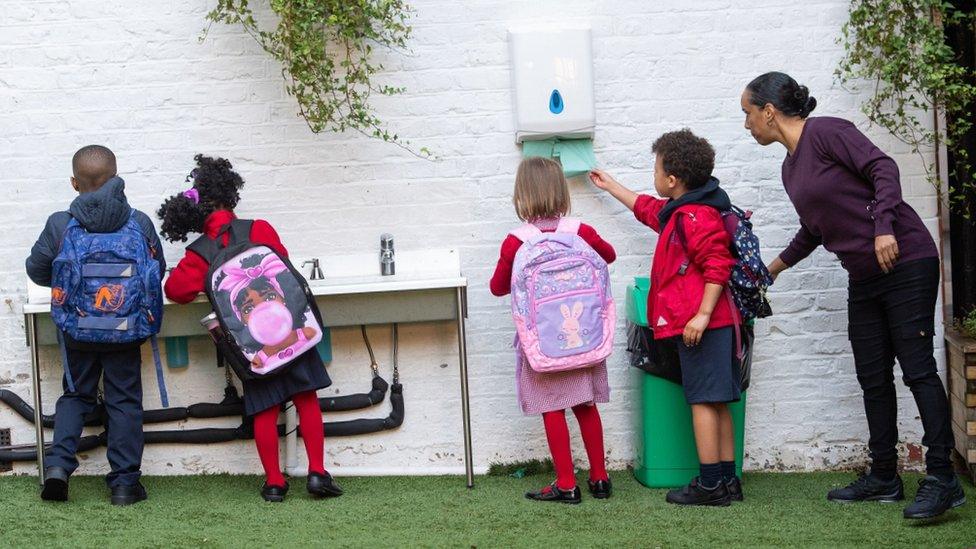
Teaching unions are pressuring the government to keep all schools in England shut after the Christmas break, amid a surge in coronavirus cases
Closing schools to tackle Covid puts children's lives on hold and should be kept to an "absolute minimum", the head of England's schools watchdog has said.
Ofsted chief inspector Amanda Spielman spoke out as ministers face growing pressure to keep all schools in England closed after the Christmas holidays.
Amid a surge in Covid cases, teaching unions have told primary school staff it is unsafe to return to work.
The government has said school closures are a "last resort" to curb infections.
Most primary schools in England are expected to open on Monday but secondary schools will reopen on a staggered basis, with exam year pupils returning on 11 January and others returning a week later.
Education Secretary Gavin Williamson announced that all of London's primaries will remain shut to most pupils, after pressure from local councils to reverse an earlier decision to keep only schools in certain boroughs closed.
It means more than one million primary school pupils will now learn from home for at least the first two weeks of term.
But by Monday, many more could be home learning after the UK's largest teaching union advised staff it was unsafe to work in schools and Brighton and Hove Council advised primary schools in its area to switch to remote learning.
In a letter to head teachers, seen by the BBC, the local authority said it had written to the education secretary requesting that it was named within the same framework which had led to the closure of primaries in London and parts of the south east of England.
Birmingham City Council's Labour leader Ian Ward said the city had seen an increase in cases since coming out of the November lockdown, with the cases among five-to-nine year olds rising from 93 per 100,000 on 7 December to 174 per 100,000 on 27 December, a pattern he said was indicative of the new variant being present.
He told BBC Breakfast Birmingham schools should carry out a risk assessment and, if it was shown it was not safe to open schools, the council would back the head teachers' decision.
Mr Williamson has said the closures were a "last resort and a temporary solution" to help tackle the particularly high infection rates in the capital, which has been driven by a new, fast-spreading variant of the virus. Vulnerable pupils and the children of key workers will continue to attend school, the government said.
Writing in the Sunday Telegraph, external, Ms Spielman said she welcomed the "real consensus that schools should be the last places to close and the first to reopen".
"It is increasingly clear that children's lives can't just be put on hold while we wait for vaccination programmes to take effect, and for waves of infection to subside," she said.
She added that long periods of remote learning had led younger children to regress in basic skills, with some forgetting how to hold a pencil or use a knife and fork.
For older children forced to spend time away from school, Ms Spielman said Ofsted had observed increases in eating disorders and self-harm.
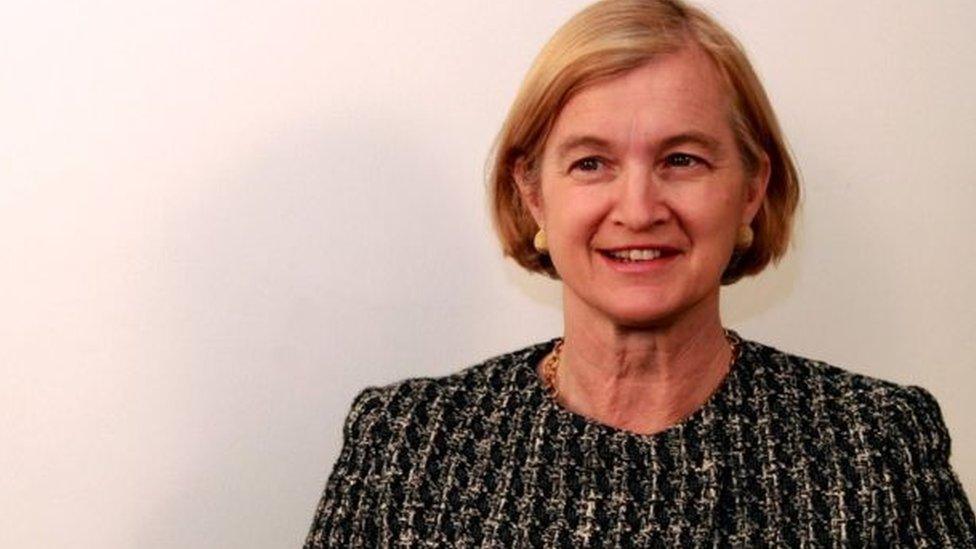
Ofsted chief inspector Amanda Spielman says school closures should be kept to an "absolute minimum"
Head teachers in Wales as well as England have begun legal action to force ministers to reveal data behind the decision for some schools to reopen.
The Department for Education said its decisions were based on new infections and the pressure on the NHS in local areas.
Paul Whiteman, general secretary of the National Association of Head Teachers, told BBC Breakfast the levels of risk in schools were "heightened compared to other areas" and that the new variant had "blown apart" the current strategies of control.
His union is calling for a brief period of remote learning so that new methods to suppress the virus can be put in place.
"If we don't do this we are going to have chaotic opening and closing throughout the early part of the year while the vaccine takes hold, and that's going to be more damaging to children's welfare and more damaging to education than if we have a short period now and a planned and sustained return to school," he said.
Three of the worst-hit English local authorities have not been told to delay the opening of primaries.
Rushmoor (817 cases per 100,000 people in the week to 28 December), Slough (777) and Spelthorne (721) are all in the south-east of England and subject to the strictest tier of coronavirus rules - tier four.
In Rushmoor where cases have increased by 54% week-on-week, the case rate is higher than 26 local authorities where primary schools will remain shut on 4 January.

What is happening with schools across the UK?
Secondary schools in England will stagger their return with pupils taking exams in 2021 starting on 11 January, and other year groups returning in person on 18 January. Most primary schools in England will return on 4 January, but in London and some surrounding areas they will not open for most pupils until 18 January.
In Wales, local councils have been told they can be "flexible" with when they open - with many schools aiming to return for face-to-face lessons from 11 January.
In Northern Ireland, primary school pupils will be taught online until 11 January. In secondary schools, years 8 to 11 will be taught online throughout January. Years 12 to 14 will return to school after the first week of January.
In Scotland, the Christmas holidays have been extended to 11 January, and the following week will be online learning only. A full return to face-to-face learning is planned for 18 January.

A further 57,725 confirmed coronavirus cases in the UK were announced by the government on Saturday, as well as 445 more deaths within 28 days of a positive Covid test. There were no deaths reported in Scotland, due to the holiday period.
The worsening situation has led education leaders to call on the government to reverse its decision to press ahead with face-to-face learning for many pupils:
The National Education Union - the UK's largest education union - has advised members against working in school and said all primary and secondary schools should remain closed for a further two weeks after the school holiday
The NAHT also called for a brief period of remote learning for most children
It said it would ask head teachers not to take action against staff who refused to return to work if they felt unsafe
The NASUWT union wrote to the education secretary to urge an "immediate nationwide move to remote education"
The Association of School and College Leaders said face-to-face teaching should be restricted to only vulnerable children and those of key workers until at least 18 January
The Independent Schools Council, which represents more than 1,300 independent schools in the UK, said it shared the safety concerns expressed by the unions
Sir Mark Walport, a former chief scientific adviser, said children aged 12 to 16 were "seven times more likely to bring the virus into a home than others in a household" and added there was a small dip in transmission in children during half-term which went up when they returned to school.
Dr Mike Tildesley, a University of Warwick epidemiologist who advises the government as part of the Scientific Advisory Group for Emergencies (Sage), said that while there was a rise in cases in secondary school age groups, there was not strong evidence of transmission in the school environment.
School staff in Liverpool on whether schools there should close for the start of term
A Department for Education spokesperson said: "Children's education has consistently been a national priority, which is why we want classrooms to reopen wherever possible in the new term.
"Schools will continue to implement appropriate safety measures to help mitigate the risk of transmission."

TESTING: How do I get a virus test?
LOOK-UP TOOL: How many cases in your area?


BEST OF 2020: Barack Obama reads from his new and compelling presidential memoir
BEST OF 2020: Grounded with Louis Theroux


Are you a parent of school-age children? Do you work in a school? Email your experiences: haveyoursay@bbc.co.uk, external.
Please include a contact number if you are willing to speak to a BBC journalist. You can also get in touch in the following ways:
WhatsApp: +44 7756 165803
Tweet: @BBC_HaveYourSay, external
Please read our terms & conditions and privacy policy
If you are reading this page and can't see the form you will need to visit the mobile version of the BBC website to submit your question or comment or you can email us at HaveYourSay@bbc.co.uk, external. Please include your name, age and location with any submission.
- Published2 January 2021
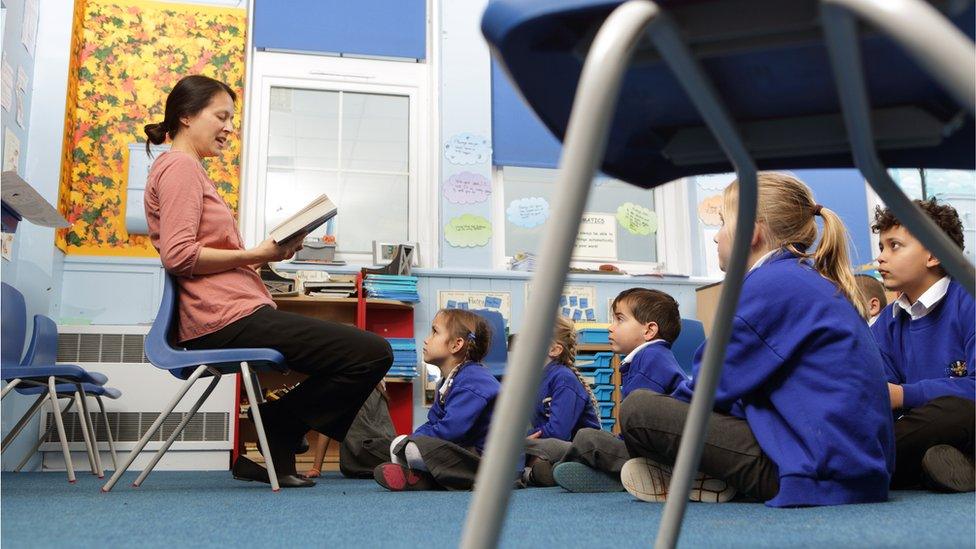
- Published15 December 2020
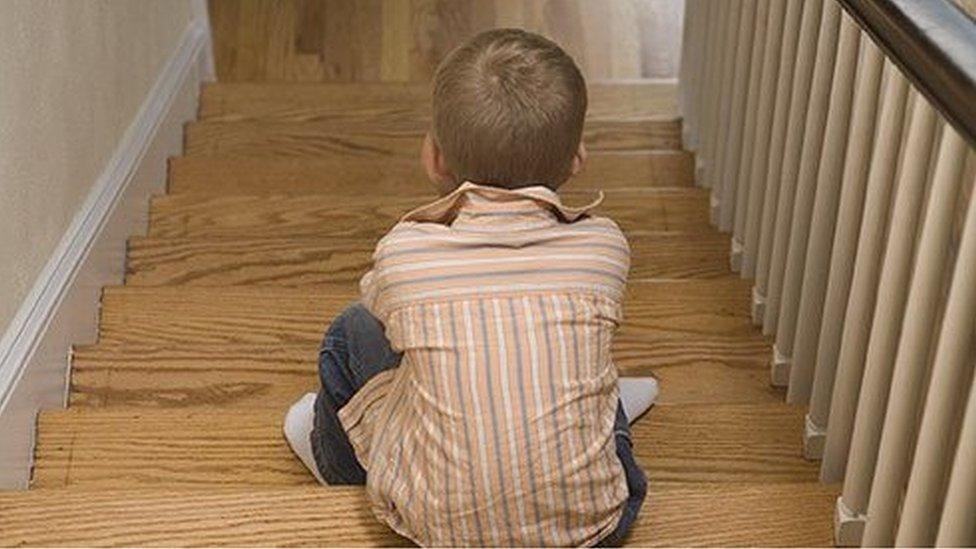
- Published10 November 2020
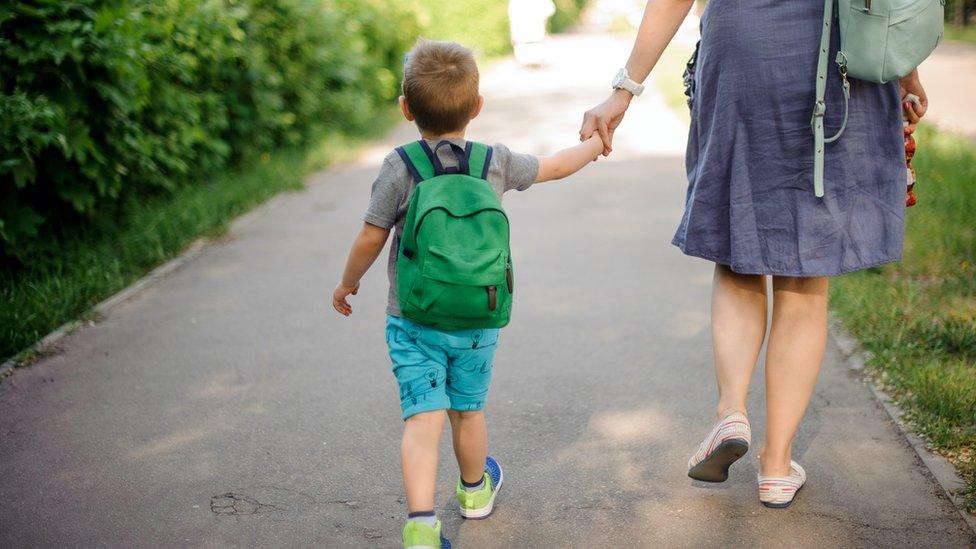
- Published27 April 2020
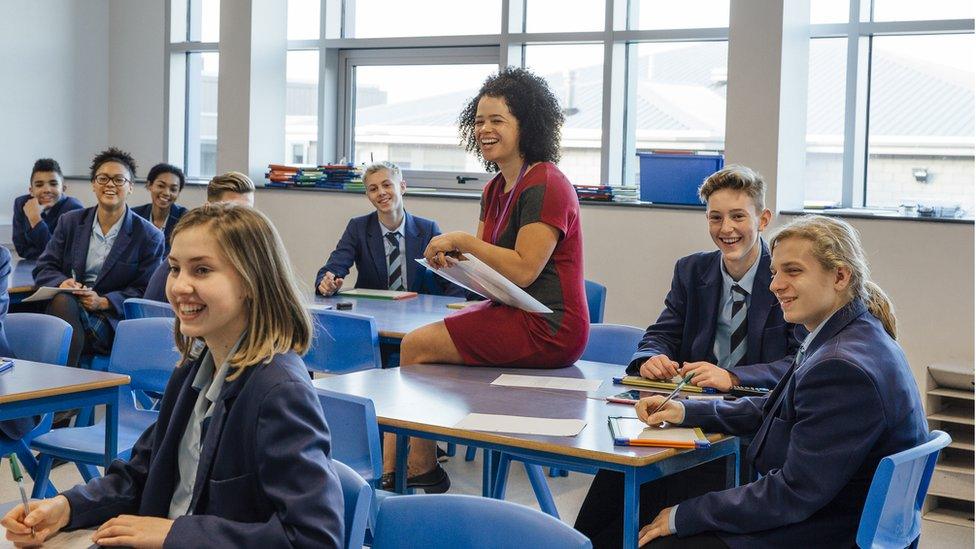
- Published1 January 2021
